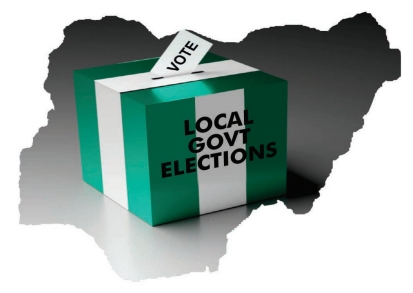Africa
Nigeria’s Local Government System: The Forgotten Tier Of Governance -By Laraba Amos
Ultimately, the fate of Nigeria’s democracy rests on whether its citizens feel the impact of governance in their daily lives. That impact is most directly felt at the local government level. If this tier continues to be ignored and weakened, democracy will remain an elite project, detached from the people it is meant to serve. Reviving the local government system is not just a constitutional necessity; it is a moral obligation to ensure that the poorest Nigerian in the most remote village can truly say: “Government is working for me.”

When Nigeria adopted a three-tier system of government—federal, state, and local—it was meant to bring governance closer to the people. The local government councils were designed to serve as the grassroots arm of administration, addressing community needs directly and ensuring development reaches even the remotest villages. Today, however, the story of Nigeria’s local government system is one of neglect, inefficiency, and deliberate emasculation. The tier that should be the engine of rural transformation has been reduced to a shadow of itself, starved of autonomy and stripped of its constitutional relevance.
Across the country, local government councils are plagued by the same challenges: poor funding, corruption, lack of transparency, and political interference from state governments. The constitutional provision that allocates funds directly to local governments has been circumvented through the creation of “joint accounts,” where state governments receive and control federal allocations meant for councils. In practice, this has made local governments financially dependent, leaving chairmen with little more than salaries for staff and token amounts for minor projects. Developmental initiatives such as building schools, markets, rural roads, and health centers—which should be the core of local government activities—are neglected or abandoned.
The effect of this dysfunction Is visible in rural communities. Villages remain cut off by impassable roads, primary health centers lack drugs and staff, schools are dilapidated, and basic sanitation facilities are absent. Citizens, who should have their first contact with governance at the local level, are left to fend for themselves. Instead of grassroots empowerment, local governments have become little more than administrative appendages of state capitals. This erosion of relevance has widened the gap between government and citizens, fueling distrust and alienation.
Political interference remains one of the biggest obstacles to functional local government administration. In many states, governors exercise excessive control over councils by handpicking chairmen and councilors, often through manipulated local government elections. The result is a culture of patronage where loyalty to the governor is more important than service to the people. Councils become political reward centers rather than engines of development. In states where local elections are conducted at all, ruling parties typically win every seat, raising doubts about fairness and accountability.
The lack of autonomy for local governments has been a recurring issue in Nigeria’s constitutional debates. Calls for restructuring and constitutional amendments to guarantee direct funding and independence for councils have often been resisted by state governments. The recent move by the Federal Government to push for local government autonomy through the courts reflects the gravity of the situation. Supporters argue that without genuine autonomy, local governments will never fulfill their constitutional mandate. Critics, however, worry that granting autonomy without addressing corruption will merely shift inefficiency from states to councils.
Beyond funding, corruption within the local government system is another factor that stifles development. Many council officials have been accused of mismanaging the limited resources available to them. Inflated contracts, ghost workers, and misappropriation of funds are common complaints from citizens. Transparency and accountability mechanisms at the grassroots are weak, and oversight from the state legislatures is often compromised by politics. This has created an environment where maladministration flourishes unchecked.
The consequences of a weakened local government system are dire. Rural-urban migration has intensified as citizens move to cities in search of basic amenities, placing enormous pressure on urban infrastructure. Agricultural communities, which should serve as the backbone of Nigeria’s food security, are neglected, contributing to hunger and food shortages. Insecurity thrives in many rural areas precisely because of the absence of functional local governance structures that can address disputes, foster community development, and support security agencies.
Experts insist that reforming Nigeria’s local government system is critical for sustainable national development. Restoring autonomy through constitutional amendments, ensuring direct allocation of funds, and instituting strong accountability mechanisms would be crucial steps. Furthermore, citizens must be empowered to hold council officials accountable through civic education, active participation in council affairs, and insistence on transparency. Local government elections must also be reformed to guarantee fairness, allowing credible leaders to emerge from the grassroots rather than political appointees imposed from above.
Ultimately, the fate of Nigeria’s democracy rests on whether its citizens feel the impact of governance in their daily lives. That impact is most directly felt at the local government level. If this tier continues to be ignored and weakened, democracy will remain an elite project, detached from the people it is meant to serve. Reviving the local government system is not just a constitutional necessity; it is a moral obligation to ensure that the poorest Nigerian in the most remote village can truly say: “Government is working for me.”
Laraba Amos is a 300 Level Student From Mass Communication Department University Of Maiduguri.
























